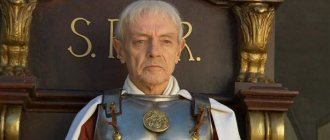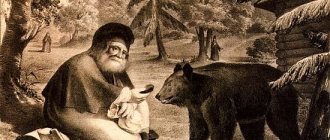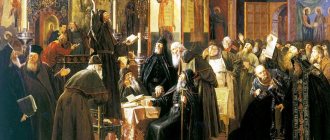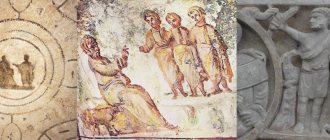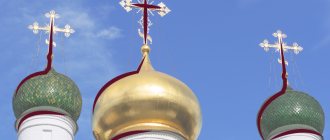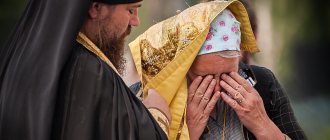The Gospel of Satan or an appeal to the atheists of the 30s?
Photo: Flickr.com
To more accurately understand the banned novel by Mikhail Afanasyevich Bulgakov, it is important to remember the time of his work. Such works as “Heart of a Dog”, “The White Guard” and many others were created by the author as a criticism of the revolution, of the new time, when it was impossible to openly criticize atheism and power, since for this one could be shot or imprisoned.
It’s scary to imagine what kind of persecution the clergy and ordinary Christians were subjected to at that time. Bulgakov himself was the son of a priest, a professor at the Academy of Theology and a very educated man, however, the future writer, unable to withstand the onslaught of atheism, was forced to renounce his religious views, although, perhaps, this happened only outwardly. This happened at the age of 18, when he took off his cross.
The novel “The Master and Margarita” was written by the author as an appeal to the atheists of the 30s, to whom it was impossible to preach about God openly. Moreover, Mikhail Afanasyevich disguised it as a kind of fairy tale for the people of that time, in which good and evil practically changed places.
Woland appears as a charming, all-powerful hooligan, his actions go unpunished, and completely innocent people suffer from his actions. Margarita, in love, in order to find her chosen one, leaves her husband and becomes a witch, and Judas, according to the author, was killed by the disciples of Christ for betrayal, which contradicts the Gospel teaching.
The mixture of Kabbalism, history, philosophy, magic and reality makes you think about the relativity of atheism, although this novel cannot be called Christian, and Bulgakov himself confirms this in his letter - “I am writing a novel about the devil.” It is for this reason that evil remains unpunished, good is defeated, and the values themselves, including Christian ones, are presented in an extremely distorted form.
About the film
It should be noted that director Vladimir Bortko approached the creation of his film with great responsibility. He studied all the literature about the novel and, above all, the assessment of it by Orthodox researchers. This was evident from his interviews and conversations and from the film itself. Moreover, the actors also became acquainted with such literature, and the book by Father Andrei Kuraev was almost a kind of guide in their creative process. A lot of criticism has been made about the film. As a rule, they lie in line with a purely aesthetic and cinematic perspective or in line with “we imagined everything differently.” It was said that the choice of actors who played Woland and Pilate was incorrect. The fact is that the age of the actors does not correspond to the age of the characters, determined by the author of the novel and historical reality. Yes, Bulgakov’s Woland looks outwardly about forty-five years old, but internally he is over six thousand in earthly dimensions, at least. It can be said about him that, unlike God, he is not “decrepit for a long time,” but “decrepit for a long time.” This is exactly what the director shows, and this image is de-aestheticized. As for the historicity of the age of Pilate, who was the same age as his Defendant, then, firstly, for some reason the unhistoricity of the image of Jesus Christ in the novel does not raise objections among these critics, and secondly, in our opinion, here the director may without noticing it, in this image he gives a symbol of the entire old world, which came to its end without realizing it. There were comments about the Cat. But it is implausibility, puppetry that is the essence of the devil’s puppets; there is no true life in them, no rootedness in being, since they have made their bet on non-existence.
We will not hide that the episodes connected with the so-called “Yershalaim chapters”, more precisely, with the image of Yeshua Ha Notsri, were expected with great fear. And here, in our opinion, the director was at his best. Firstly, he showed that Yeshua is just the philosopher Yeshua, but not the Messiah, not Jesus Christ. And the actor Bezrukov was aware that he was not playing the Savior, but a simple man worthy of pity and compassion, but not worship. Secondly, the crucifixion scene was filmed with chastity, without naturalistic relishing the details of suffering, without the affectation characteristic of non-Orthodox spirituality.
Moscow is perfectly shown - this is the metaphysical Moscow of the thirties, ready to receive a “consultant”. In fact, they themselves prepared the place for their visit. Moscow: a world without God, or rather, a world that denies God. The threshold of hell is what Moscow is like in the novel, and in the film this is especially emphasized. The director managed to convey the total loneliness of a person, and this is hell.
The visual sequence of scenes of Margarita’s transformation into a witch (who already lived in her), the Sabbath, and Satan’s ball leaves no doubt about the essence of the forces represented in them. There is no aestheticization or romanticization of evil spirits. “Nude” was presented by the director with that tact and sense of proportion that have practically disappeared from cinema today.
But, most importantly, in our opinion, Vladimir Bortko managed to show everything that Bulgakov hid, and at the same time not depart from the text of the novel. He managed to show that before us is evil, albeit dressed up in carnival props. Carnival fake evil is exactly what Woland and his retinue need, so that people do not see the real evil behind the masks and disguises.
There is no true image of good in the film. But here the director is not to blame. It is not in the material itself, that is, in the novel. Good is given a secondary place in the book; it acts in it as a passive principle. The bearer of good is more illusory than real. He is ghostly, like the lunar path along which he walks with Pontius Pilate. It is strange that Bulgakov connects moonlight, traditionally associated with dark, satanic mysticism, with Yeshua-Jesus (at the end of the novel there is a crafty combination of two, actually incompatible, images).
We can say that Vladimir Bortko managed to film a novel full of temptations and charms, avoiding their impact as much as possible when working with such material.
Chapters on Pontius Pilate, Satan and Christ
Photo: Flickr.com
Those who are not familiar with the Holy Scripture and its history may take what is written about in “The Master and Margarita” as historical facts, but we should not forget that the author wrote the novel under the influence of narcotic intoxication and the manuscript was never completed during his lifetime. Bulgakov used a prohibited substance as a painkiller after being vaccinated against diphtheria; over time, he ruined his health - at the end of his life, the writer lost his speech. Elena Sergeevna, his last wife, came up with the ending for him. Therefore, the chapters about Satan, Pilate, Christ do not even correspond to historical reality, although they encourage atheists to think a little about what is higher than them.
Of course, for those who are not strong in faith, the chapters about Pilate can cause confusion in their feelings and faith, which is why priests do not recommend reading the novel to new converts. This can cause dark thoughts, distort the idea of good and evil, and cause despondency and unhealthy thoughts in some people.
Preface
Mikhail Bulgakov took from this world the secret of the creative concept of his last and, probably, main work [1] “The Master and Margarita”.
The author’s worldview turned out to be very eclectic: when writing the novel, Judaic teachings, Gnosticism, Theosophy, and Masonic motifs were used[2]. “Bulgakov’s understanding of the world, at best, is based on the Catholic teaching about the imperfection of the primordial nature of man, which requires active external influence for its correction”[3]. It follows from this that the novel allows for a lot of interpretations in the Christian, atheistic, and occult traditions, the choice of which largely depends on the point of view of the researcher...
“Bulgakov’s novel is not dedicated at all to Yeshua, and not even primarily to the Master himself with his Margarita, but to Satan. Woland is the undoubted protagonist of the work, his image is a kind of energy node of the entire complex compositional structure of the novel”[4].
The very name “The Master and Margarita” “obscures the true meaning of the work: the reader’s attention is focused on the two characters of the novel as the main ones, while in the meaning of the events they are only the protagonist’s henchmen. The content of the novel is not the story of the Master, not his literary misadventures, not even his relationship with Margarita (all this is secondary), but the story of one of Satan’s visits to earth: with the beginning of it the novel begins, and with its end it ends. The master is introduced to the reader only in the thirteenth chapter, Margarita even later - as Woland’s need for them arises”[5].
“The anti-Christian orientation of the novel leaves no doubt... It is not without reason that Bulgakov so carefully disguised the true content, the deep meaning of his novel, entertaining the reader’s attention with side details. But the dark mysticism of a work, despite the will and consciousness, penetrates into the human soul - and who will undertake to calculate the possible destruction that can be caused in it?..”[6]
The above description of the novel by the teacher of the Moscow Theological Academy, candidate of philological sciences Mikhail Mikhailovich Dunaev indicates a serious problem that arises before Orthodox parents and teachers due to the fact that the novel “The Master and Margarita” is included in the literature program of state secondary educational institutions. How to protect students who are religiously indifferent, and therefore defenseless against occult influences, from the influence of the satanic mysticism with which the novel is saturated?
One of the main holidays of the Orthodox Church is the Transfiguration of the Lord. Like the Lord Jesus Christ, who was transfigured before His disciples (Matthew 17:1–9, Mark 9:1–9), the souls of Christians are now being transformed through life in Christ. This transformation can be extended to the world around us—Mikhail Bulgakov’s novel is no exception.
Below we offer an experience in interpreting some episodes of this work, giving teachers of secular educational institutions the opportunity to get to know themselves and share with their students elements of the Orthodox worldview, taking the novel “The Master and Margarita” as a basis. This goal determines a certain one-sidedness and tendentiousness in the approach to the novel, which, however, is inevitable when trying to consider any significant work of art...
More about dualism
In conclusion, I would like to return to the issue of dualism. His idea is quite tempting. If someone is on the side of the light, it means that it is necessary that someone choose darkness, otherwise “the balance of the universe will be disrupted.” Even a certain messianic idea of evil appears. And if we add here the postulate about the relativity of every act, we get an ideology that is present in the modern cultural space. Speaking about cinema, we can cite the films “Night Watch” and “Day Watch” as an example. In these Russian (it’s hard to call them Russian) films, using Hollywood technology, the viewer is shown a “Zoroastrian” view of the world. Zoroastrianism is the religion of Ancient Iran. She is an example of dualism. There are two supreme deities, equal in power: the good Ahura Mazda and the evil Ahriman, who are in constant struggle. However, in Zoroastrianism there was still a hope that someday Ahura Mazda would defeat Ahriman. Modern “cultural Zoroastrians” not only do not hope for such a victory. Rather, they resist it in every possible way and thereby multiply evil, confirming that it is impossible to remain neutral in the struggle between two opposing forces. The main evaluation criterion in this worldview is box office receipts. But the golden calf is by no means “beyond good and evil,” but in a very specific place - in the one from which Woland the Satan comes.
Don't forget the goal!
Never forget what your goals are in everything you do. If you are a servant of God, then your goal is to do the will of God. This means that if you want to fulfill His will, be sure that you know it and can give an account to anyone about this word and deed that you do, otherwise we are just fanatics who blindly follow some ideas that are not understand.
If you have a strong opinion, help the teacher understand why the book is bad and what is wrong with the information presented in the novel. Demonstrate that your faith is not blind, but that it is a faith that will not disappoint, as the apostle Peter says in the text below:
Sanctify the Lord God in your hearts; Be always ready to give an answer to everyone who asks you to give a reason for the hope that is in you with meekness and reverence. Have a good conscience, so that those for whom you are slandered as evildoers may be put to shame by those who reproach your good life in Christ. For, if it pleases the will of God, it is better to suffer for good deeds than for evil (1 Peter 3:15-17)
It's not a sin to take this exam
Therefore, be submissive to every human authority, for the Lord: whether to the king, as the supreme authority, or to the rulers, as those sent by him to punish criminals and to encourage those who do good - for such is the will of God, that by doing good we should stop the ignorance of the foolish. people - as free, not as using freedom to cover up evil, but as servants of God. (1 Peter 2:13-16)
The Apostle Peter calls us to be submissive to every human authority, for the Lord, for this is the will of God, that by doing good we should stop the ignorance of foolish people: teachers are also temporary authorities who watch over us throughout the years of study, so we must obey them, but obey for the Lord, since He is our Supreme Authority. Therefore, you should obey the teacher's decision, but Peter tells us to behave as free people, specifying that we must behave as servants of God. Therefore, you should pass this exam, however, as a servant of God, you must understand that your priority goal is to glorify Him in what you write and obey His will. Therefore, persist in your decision to present the novel in the light of the Bible and show what the author's deviations from God's truth are.
